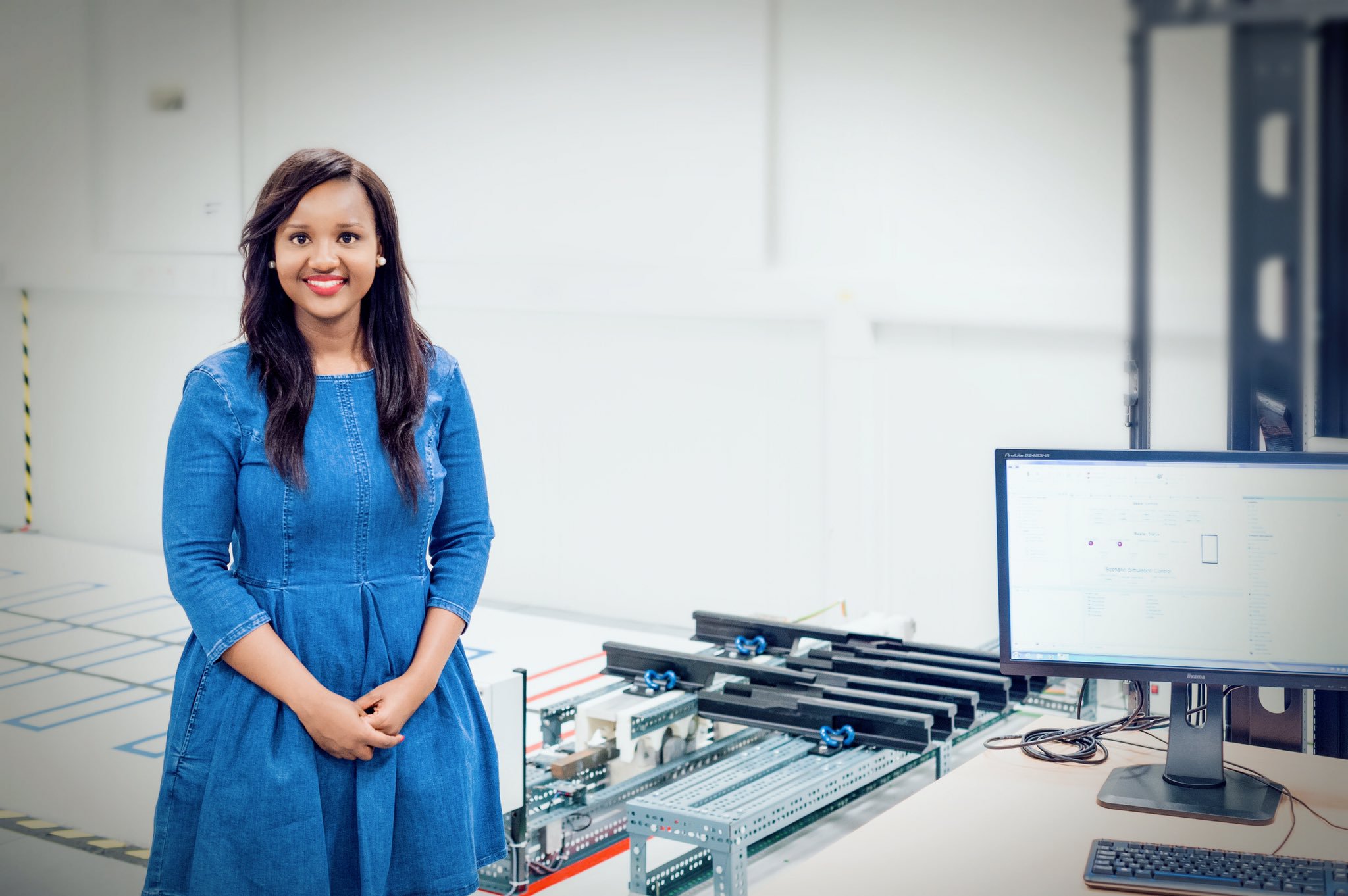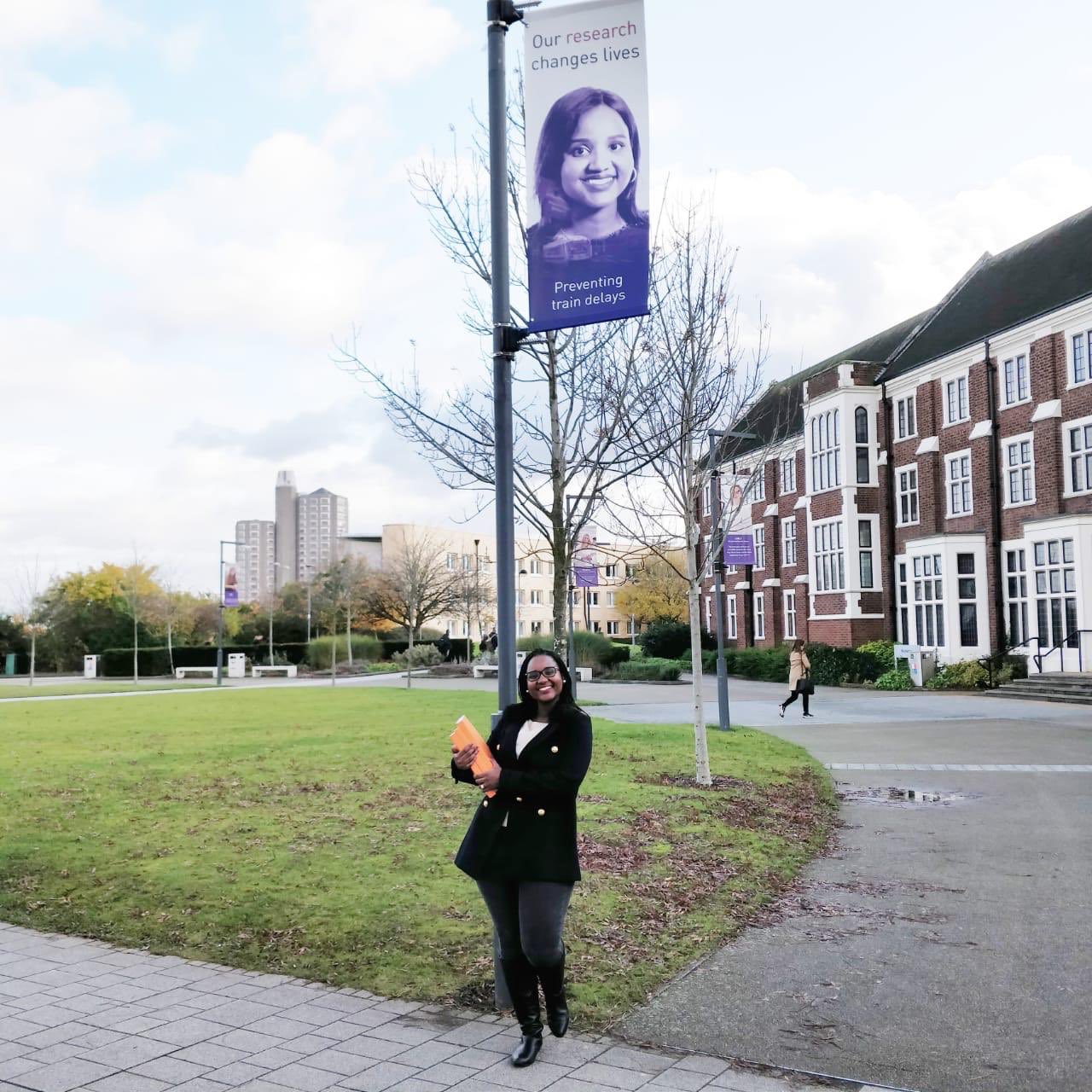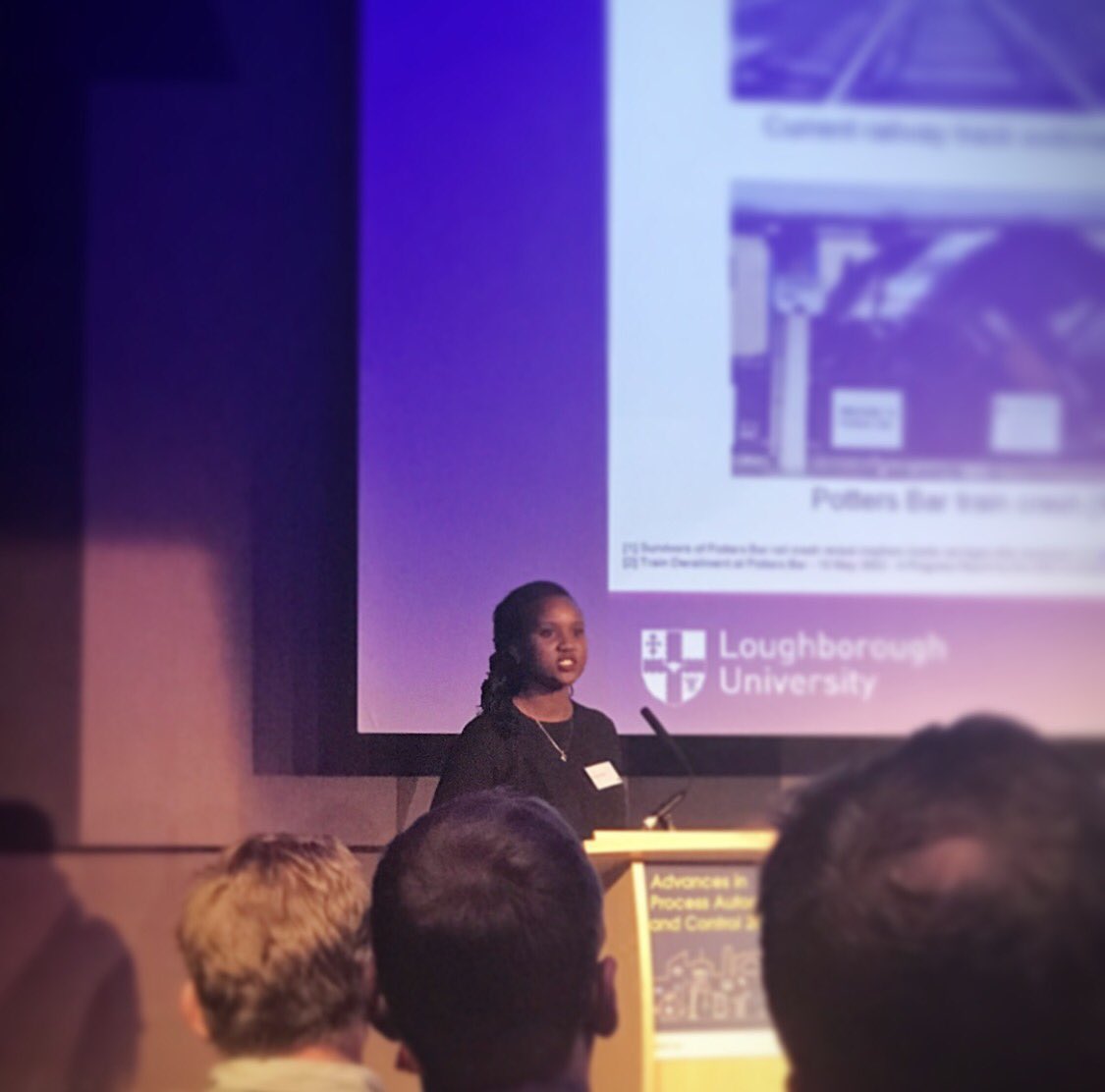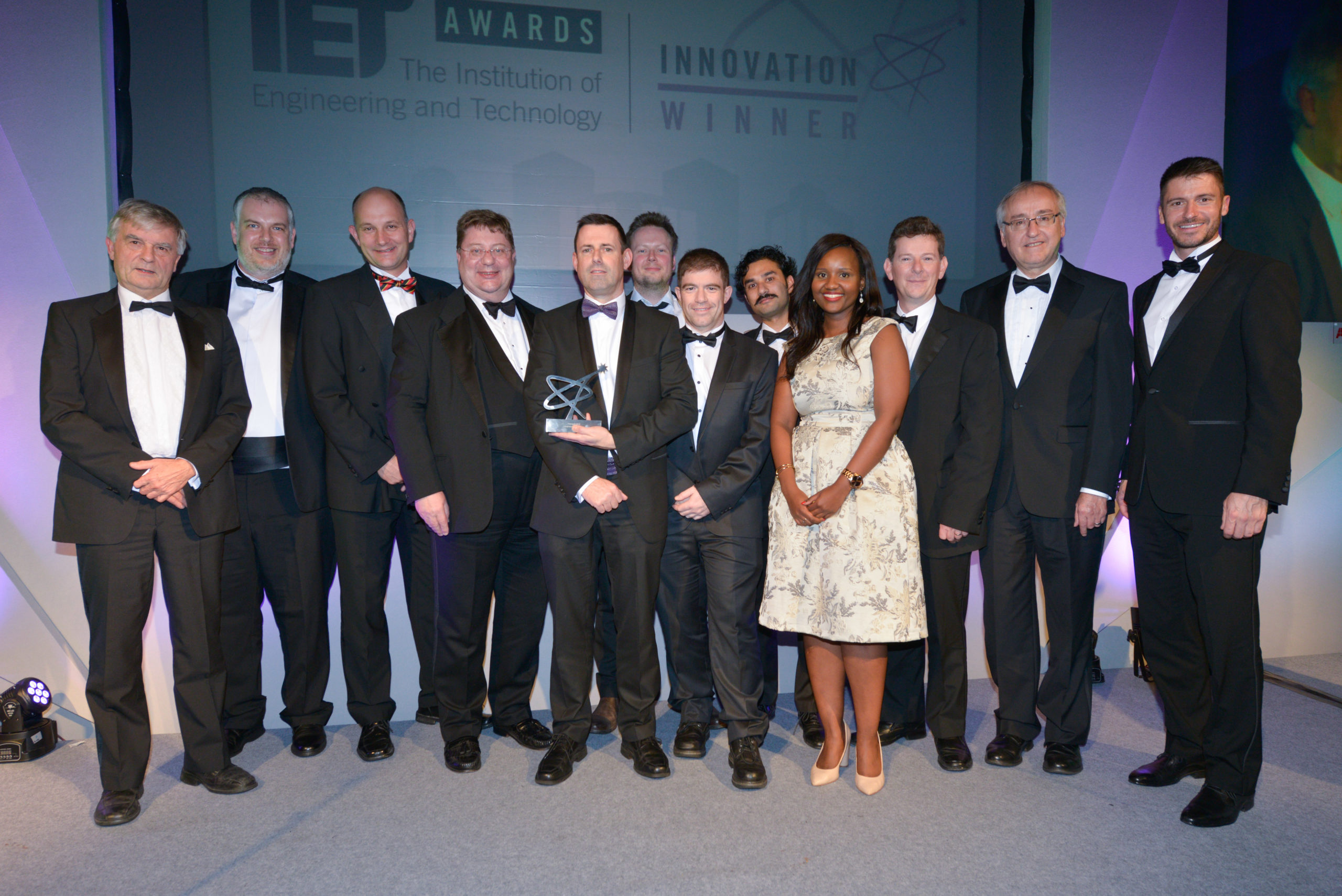At 15, Dr Precious Kaijuka Mwongera attempted to solve an election problem Uganda was experiencing at the time. Following a visit to one of the polling stations, she discovered manual voting was the norm. Realizing this could be done online; she decided to fix this the little way she could. She built an online voting system that was later hawked to the Ministry of Information, Communication and Technology. Although the ministry didn’t take up her solution, her efforts earned her a ‘Cambridge Outstanding Achievers’ Award for the best project in Kenya.
This wet her appetite for engineering that would later see her solve another century-old problem on a global scale. While pursuing her PhD at Loughborough University in the UK, Dr Precious developed a technology that prevents train accidents, a challenge that had persisted in the global railway system for over 200 years. This innovation was widely welcomed and received several recognitions including the 2016 Institution of Engineering and Technology (IET) Innovation award.
The mother of one has since evolved to become one of the most remarkable engineers of our time, challenging the status quo and blazing a trail for other girls in STEM. She has worked with some of the world’s biggest brands; landing her first job after university at Goldman Sachs, a leading investment bank based in the UK as a technology analyst. Dr Precious currently works in Nairobi as a management consultant focusing on Technology and Innovation.
Through the many hats she wears, making a difference in the world remains central. “I like change, I like solving problems, that really drives me but most importantly it is my son. I just want to be the best version of me so he can be inspired and know that there are limitless opportunities for him as he grows.”

GLIM: What event shaped you most to become the person that you are today?
DR. PRECIOUS: One thing that shaped me is living away from home and my family. At the time I went to university in the UK, I was alone because I was in a new world, I had to find out who I was in a world that was so different for me, I had to make myself. Being isolated, thrown in the deep end where everything is different, no one looked like me. In my undergraduate course, I was the only black female in a class of 400. I had to excel because I felt like I wanted to be at the top of my entire class. I would also say the way my parents brought me up shaped me. They have always told me that the only impossibility is the one you give yourself. So I went into the world knowing that I can do everything.
GLIM: What kept you going?
DR. PRECIOUS: As a Christian, I believe at the call of every human being on earth, there is a common equalizing factor; we are one people. So as soon as I entered the class, I put the differences behind me. This is something that I have taken into my work. Cognitive diversity is what I look at; I do not look at physical differences because they are who they are. And that was the best thing I did for myself because I was accepted for who I am, joined committees, and always flew my Ugandan flag. I would draw the map of Africa in my first year and show them where Uganda is because they did not know. In my mind, I was an ambassador. Differences are not a big deal; the most important thing is what you can put on the table.
GLIM: What do you love most about engineering?
DR. PRECIOUS: While doing my PhD, one thing I loved about engineering is that there is always a solution to every engineering problem, even if a problem has existed forever and you can be the one to solve it. I feel so empowered by engineering to know that I just need to take a couple of logical steps to solve a problem and that is amazing. It can push you to great limits.

GLIM: What are some of the challenges you face as an engineer?
DR. PRECIOUS: As much as there is a benefit to being different, it is challenging to work in a male-dominated field, not because I am sidelined but you are always different, and mostly when there is an opportunity, out of 40, you will find that only 03 women applied. But that is changing now because there are several female role models to look up to, like Kamala Harris, the newly appointed chief justice in Kenya, among others. They encourage me to move on.
GLIM: What has been your greatest career sacrifice?
DR. PRECIOUS: Leaving a high paying job at Goldman Sachs to go and be a student. That was a sacrifice at that time, though it was an investment for the future. It affected my financial status and you know a PhD is not just for one or two years. It was hard.
GLIM: What are some of the habits you practice to ensure constant growth?
DR. PRECIOUS: Constant learning through reading books, listening to podcasts, and talking to people. One thing I have learnt in my career and as a person is that there is a lot of wealth of knowledge in different people. When you talk to 10 people a day, you will be more knowledgeable. And if you keep to yourself, you will not learn. I talk to people a lot, I ask them questions like how did you get where you are? They equip me with knowledge; I have done that since I was in university till now. I like to see role models; I have a couple of them and through the Internet.
GLIM: Who do you look up to?
DR. PRECIOUS: I look up to my parents. They have been quite successful in different aspects of life and if I can be anything close to that for my son, that would be a fulfilling life.

GLIM: You are paving way for other women in STEM through the SHE STEMS Network. What inspired this initiative?
DR. PRECIOUS: SHE STEMS Network is a mentoring and career platform for women and girls in STEM careers. It is a passion initiative I started in 2016 after I left my job as a Technology Analyst at Goldman Sachs to enrol for my PhD. Being the only black girl in a class of over 400 inspired me. It opened my eyes to the work that needs to be done to bring in more girls. I decided to mentor young girls to let them know about career opportunities and apply for university scholarships.
GLIM: Why do you think mentorship is crucial in the empowerment of women in STEM?
DR. PRECIOUS: Mentorship helps to reduce surprises along the way. Mentors provide knowledge, so you are well equipped to overcome a challenging situation.
As women, we need encouragement, someone to tell us we can do it because we are not always as confident as men. It is said that women will only apply for jobs when they have 90% of the skills while men are comfortable applying knowing only 50%.
GLIM: What are some of the achievements you have attained with the SHE STEMS Network?
DR. PRECIOUS: When we started in 2016 it was just me but now we have built a database of over 50 mentors around the world. We have coached about 200 girls both online and physically before Covid19 hit. We have connected these girls to opportunities. They call me and tell me what they want to further their careers and I put them in contact with people who can help them.
GLIM: What do you think makes you successful?
DR. PRECIOUS: I never give up, I am resilient. When I look back at the time when I graduated and started job searching, I applied for multiple jobs and lost a lot of weight because I was always travelling for interviews.
I have a good network of people who have supported me and held me under their wings. I find that my previous managers care about me; One of my managers once told me, ‘I would want you to stay, but you can be better off at this other place because you have the potential.’
Every place I go to is because I applied and put in the work. Believe you can do anything. The only impossibility is the one you give yourself.
GLIM: What keeps you grounded?
DR. PRECIOUS: I have always kept in mind that I was hired because of who I am, so if I change, I become a different person. I am proud to be a Ugandan female Engineer. This has kept me grounded when I remember where I come from.


